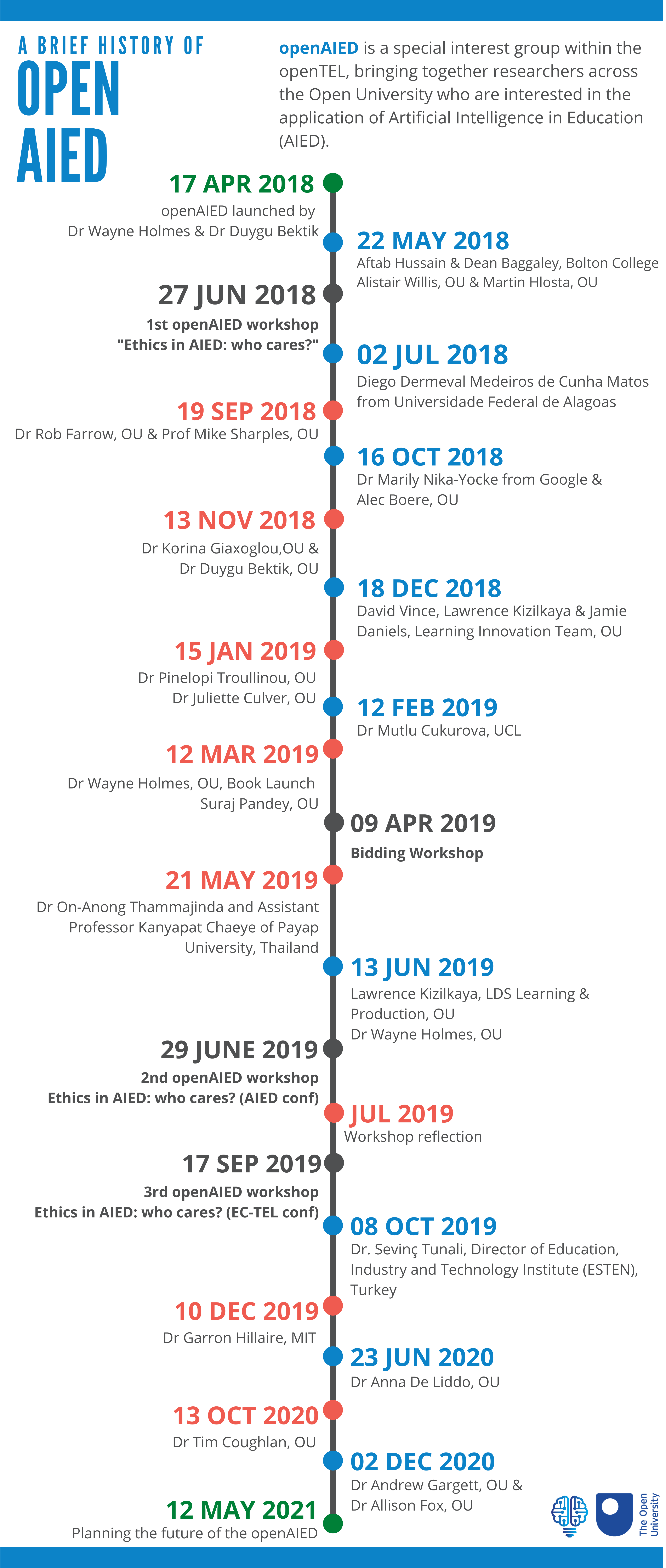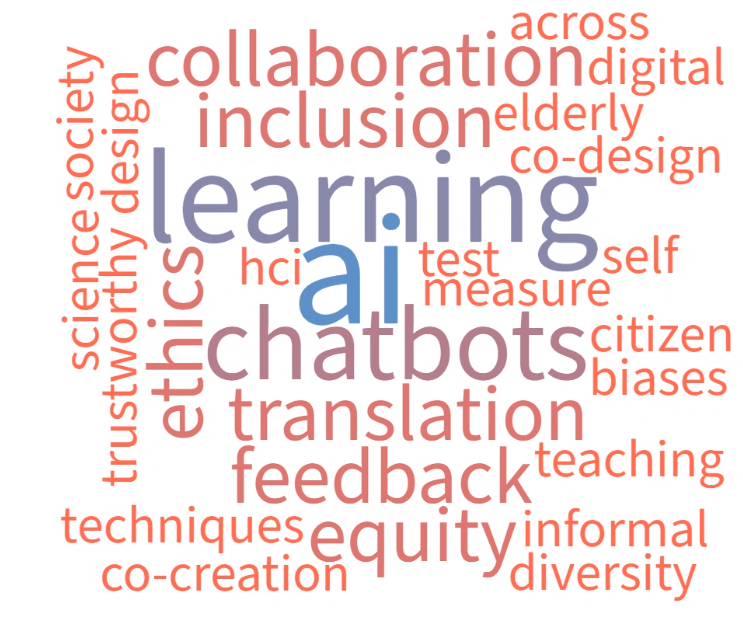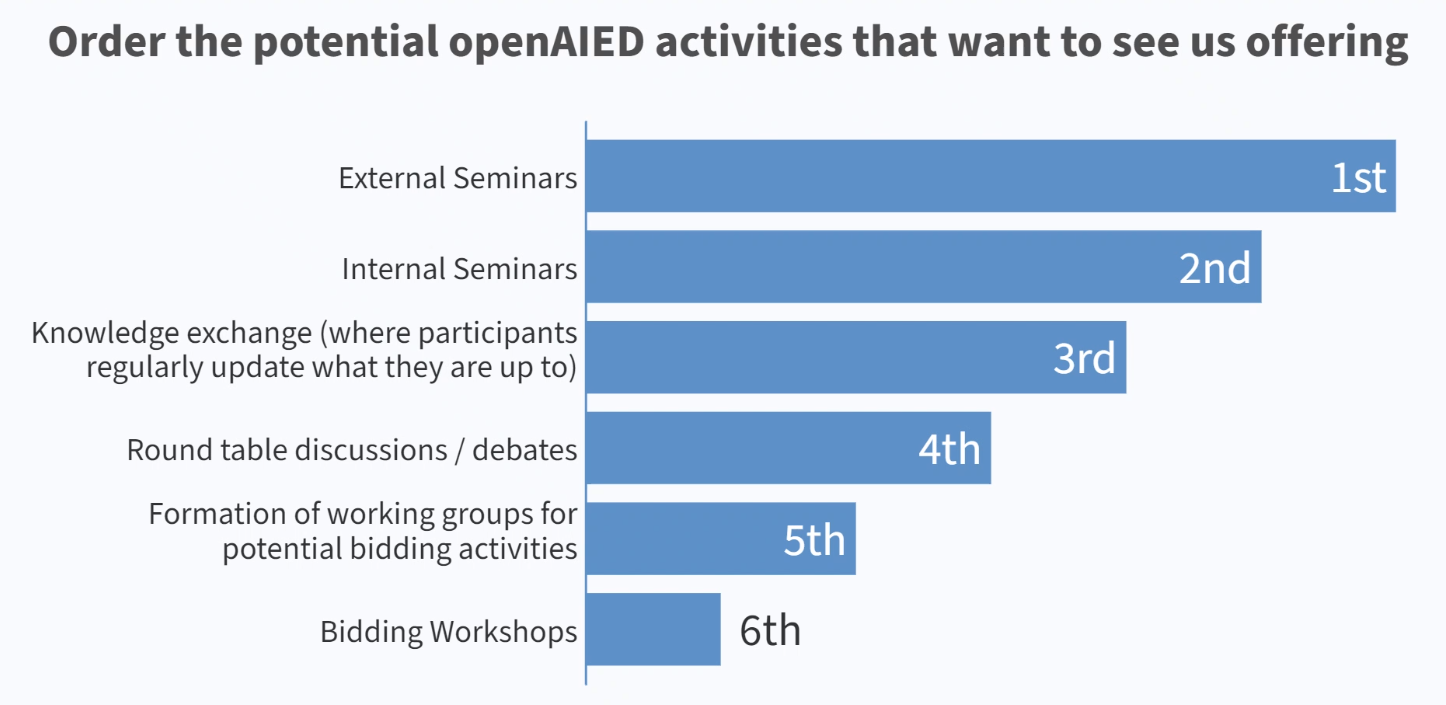The Special Interest Group focused on applying Artificial Intelligence in Education (openAIED SIG) from OpenTEL had its first meeting of the year on Wednesday, May 12th, 2021. The SIG event was led by Dr Duygu Bektik and Dr Francisco Iniesto from the Institute of Educational Technology (IET) at The Open University.
The online session kicked off with a timeline that displayed what the openAIED SIG has done since it was launched by Dr Wayne Holmes and Dr Duygu Bektik in April 2018. The brief history of the SIG includes an animated series of sessions bringing together researchers across the university and beyond who are interested in AIED.
As you can tell, the SIG has welcomed numerous experts involved in a diverse range of topics, including ethics in AIED, e-assessment and learning analytics. They have also run a bidding workshop where researchers have had the opportunity to work together and write a proposal for potential research projects. It is expected that the upcoming sessions of 2021 will follow a similar vibrant timeline to the one presented above. Hence, the purpose of the meeting was to give people an opportunity to engage and decide the future agenda of the openAIED SIG.
In the second part of the meeting, the organisers set a poll to get an idea of what people would like to see in future events. Chatbots, translation and feedback were among the most popular topics attendees chose to have in the SIG, as shown in the Word Cloud below:
The poll also asked members of the audience what type of activities they would like to have in the future. Running external and internal seminars, as well as knowledge exchange sessions were on the top three of the charts:
One of the academics attending the meeting suggested: “It’d be good to explore further applications of anything that’s already being/been developed”. Following that suggestion, a PhD student added: “it will be interesting to have a session where people joining can evaluate the pros and cons of X app in education”. A lecturer in AI also shared their experience running an AI group in the faculty of WELS, particularly within the school of LAL (learning applied linguistics). They are also exploring how to make the group more interactive, such as running debates sessions to hear people’s opinions on big topics in AI that tend to differ across disciplines.
The organisers concluded that the SIG agenda does not have to be limited to just one or two types of session. It is open to any dissemination, discussion, and engagement format with other researchers and practitioners eager to learn more about the application of artificial intelligence in the landscape of (distance) education.
The discussions from the meeting will be used to inform the upcoming SIG events. If you would like to keep up to date with the openAIED SIG agenda, please email us to add your name to the openAIED mailing list.


